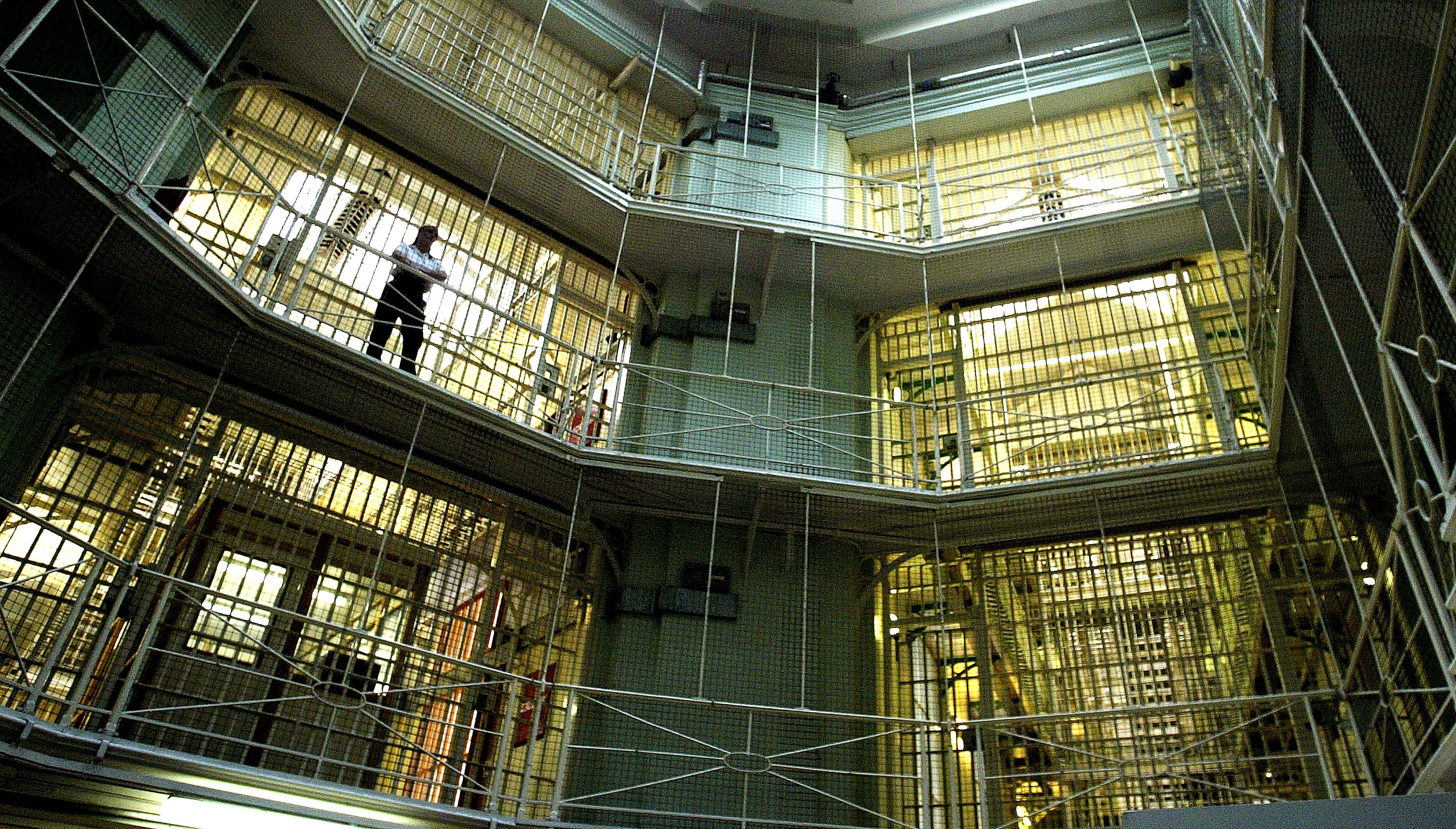Young inexperienced prison officers at risk of ‘grooming’ from most dangerous criminals
Exclusive: Nearly a third of prison officers at category A, high-security jails have fewer than three years of experience

Your support helps us to tell the story
From reproductive rights to climate change to Big Tech, The Independent is on the ground when the story is developing. Whether it's investigating the financials of Elon Musk's pro-Trump PAC or producing our latest documentary, 'The A Word', which shines a light on the American women fighting for reproductive rights, we know how important it is to parse out the facts from the messaging.
At such a critical moment in US history, we need reporters on the ground. Your donation allows us to keep sending journalists to speak to both sides of the story.
The Independent is trusted by Americans across the entire political spectrum. And unlike many other quality news outlets, we choose not to lock Americans out of our reporting and analysis with paywalls. We believe quality journalism should be available to everyone, paid for by those who can afford it.
Your support makes all the difference.Nearly a third of officers at high-security prisons have fewer than three years of experience, official figures show, fuelling concerns about safety and “grooming” of staff by the most dangerous criminals in the country.
As of June 2023, a total of 2,993 (31 per cent) prison officers had not been in their jobs longer than 36 months – up from just 236 (6 per cent) in June 2015, according to Ministry of Justice data.
Experts warned that newer recruits who require more support, training and mentoring were at “very real risk” of being groomed by “experienced” inmates, presenting new dangers in already “overstretched” prisons.
A union representing prison officers said the figures were reflective of the staffing “crisis” across the sector, with His Majesty’s Prison and Probation Service (HMPPS) losing staff “hand over fist”.
Labour said the government needed to “urgently address” the challenges facing prison staff.
The figures come following suspected terrorist Daniel Khalfe’s escape from Wandsworth prison.
Mr Khalife, a 21-year-old former soldier, pleaded not guilty to escaping from the category B jail in south London. He appeared in court last Thursday via video link from the category A Belmarsh prison, also in London.
It sparked a national debate about security across the UK prison estate as well as staffing and morale issues more broadly among the officers working in them. Overcrowding and drug abuse are also significant problems.

Category A prisons have the highest level of security, and house male prisoners who pose the greatest threat to the public, the police, or national security – such as terrorists, murderers and rapists. Category D prisons have the lowest security and house criminals who are not deemed a risk to society.
At HMP Belmarsh, where Mr Khalife is held, 116 prison officers (27 per cent) had fewer than three years of experience as of June 2023 – up from 19 (5 per cent) in 2015.
Of all the category A jails in England, HMP Woodhill in Milton Keynes and HMP Wakefield in West Yorkshire had the highest percentage of these officers – 38 per cent. HMP Lartin in Worcestershire had the lowest on 24 per cent, according to the figures, published by prisons minister Damian Hinds, in response to a parliamentary question tabled by the Labour Party.
Charlie Taylor, the chief inspector of prisons, said that some recruits go on to do an “outstanding” job but that those new to the service needed more support and mentoring from experienced staff.
“Whereas in the past recruits to the Prison Service were often older and more experienced, we now have officers starting who are only just out of school,” he told The Independent.
Mr Taylor said that when mentoring was lacking “it can actually be the prisoners who end up imparting key knowledge to new recruits and I have heard many tales of this taking place”.
He added: “Positive relationships between staff and prisoners are, of course, to be encouraged. But there is a very real risk that inexperienced new recruits can be groomed by experienced prisoners, introducing new areas of risk to an already stretched service.”
Earlier this month The Independent revealed that across the prison estate, only 30 per cent of officers had more than 10 years of experience – down from 60 per cent in 2017. More than 1,000 of those staff left in the past year.
“The sharp rise in the proportion of inexperienced staff in prisons reflects the staffing crisis in the Prison Service, with one in seven uniformed officers leaving their job during 2021-22,” Mick Pimblett, assistant general secretary of the Professional Trades Union for Prison, Correctional and Secure Psychiatric Workers, said.
“I am sure that HMPPS will make the same old statements regarding staffing retention toolkits, the intention to recruit extra staff and so on, but the simple fact is that HMPPS are losing staff hand over fist.”
He added: “The recent pay announcement, which stated that experienced staff on old terms and conditions would not receive a pay award this year or in the future, along with unsafe or unachievable regimes, and increased violence will only lead to further staff leaving the service.
“These prisons in the high secure estate hold some of the most dangerous people in society, including terrorists and murderers. Recent His Majesty's Inspectorate of Prison reports regarding prisons such as HMP Woodhill, HMP Whitemoor and HMP Long Lartin make for very grim reading. New members of staff are being mentored by other new members of staff, and it is a recipe for disaster which is of HMPPS’s own making”.
Sir Bob Neil, chair of the Commons justice committee and the Conservative MP for Bromley and Chislehurst, said of the high-security prison figures: “This is a stark and worrying statistic. Retaining experienced and knowledgeable prison staff is vital to safety on the estate and rehabilitation work with prisoners.
“The government risks failing in its duty of care to prison staff and prisoners alike by allowing this situation to perpetuate.”
Shabana Mahmood, the shadow justice secretary, said: “Our prisons are in crisis after 13 years of Conservative chaos, but these figures paint a stark picture of the reality of a mass exodus of staff.
“The high staff turnover means a lack of experience on prison wings and new recruits struggle to find people to learn from. The Prison Officers’ Association estimates that almost 100,000 years of cumulative experience have been lost since 2010.
“The government needs to urgently address the challenges that prison staff are facing to ensure we see an improvement in engagement and retention. Labour will get a grip of the prison system and ensure public safety.”
A Prison Service spokesperson said: “We are doing more than ever to attract and retain the best staff, including starting salaries for officers which have risen from £22,000 to £30,000 since 2019.
“Our hardworking officers are also being equipped with the tools they need such as Pava [incapacitant] spray and body-worn cameras, and X-ray body scanners prevent the smuggling of illicit contraband that fuels disorder.
“These measures are working and in addition to increasing the number of officers by 4,000 since 2017, retention rates for prison staff are now improving.”
Join our commenting forum
Join thought-provoking conversations, follow other Independent readers and see their replies
Comments